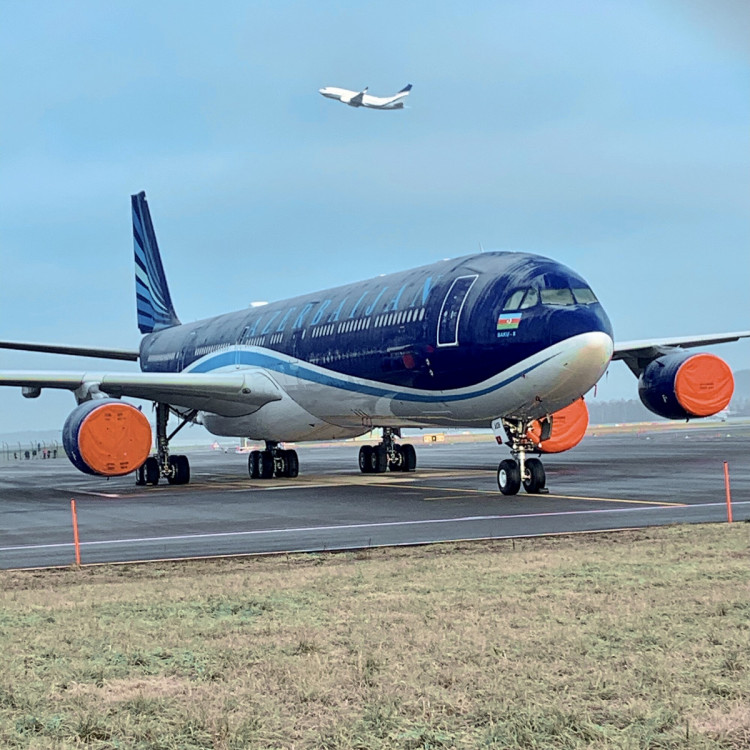The Kremlin has dismissed allegations that a Russian missile caused the crash of Azerbaijan Airlines Flight 8432, which went down near the Kazakh city of Aktau on Wednesday, killing 38 of the 67 people on board. Kremlin spokesperson Dmitry Peskov urged restraint in speculating about the incident, emphasizing the importance of waiting for investigative findings.
"It would be incorrect to make any hypotheses before the investigation comes to conclusions, and we definitely cannot do it and no one should do it," Peskov stated during a press briefing on Thursday.
The Embraer 190 jetliner, en route from Baku, Azerbaijan, to Grozny, Russia, had attempted an emergency landing due to technical issues. Instead, it crashed approximately 1.8 miles from Aktau Airport, igniting in flames and splitting into two. Survivors included 29 passengers, among them two children, according to Kazakhstan's Health Ministry.
Citing government sources, Euronews reported that a Russian surface-to-air missile fired during drone air activity above Grozny may have struck the aircraft mid-flight. The missile, allegedly launched from a Pantsir-S air defense system, exploded near the plane, damaging it severely. These claims have not been independently verified, and Azerbaijani officials have refrained from assigning blame.
"The reasons for the crash are not yet known," Azerbaijani President Ilham Aliyev stated during a meeting addressing the tragedy. "There are various theories, but I believe it is premature to discuss them. The matter must be thoroughly investigated."
Aliyev declared a national day of mourning on Thursday, underscoring the impact of the incident on Azerbaijan. He noted that worsening weather conditions had initially prompted the flight to divert, though the exact sequence of events remains under scrutiny.
The crash has drawn attention to Russian air defense operations. At the time of the incident, Russian forces were targeting Ukrainian drones in Chechnya. The head of the Security Council of the Chechen Republic, Khamzat Kadyrov, confirmed the drone activity but stated there was no damage or casualties from the drone attacks.
Matthew Borie, chief intelligence officer at Osprey Flight Solutions, added to the growing speculation, noting evidence consistent with a missile strike. "Subsequent reporting and contextual information, including the follow-on video examination of the wreckage ... leads Osprey to assess that the flight was likely shot down by a Russian air defense system," he told The Wall Street Journal.
Further fueling the controversy, Euronews reported that the damaged aircraft had been denied landing rights at Russian airports despite pilots' requests for emergency clearance. The plane was reportedly instructed to proceed across the Caspian Sea to Aktau, even as its GPS systems were jammed along the route.
The incident has evoked comparisons to previous air disasters involving Russian forces, including the downing of Malaysia Airlines Flight MH17 over eastern Ukraine in 2014. Analysts have pointed to similarities, although the investigation into Flight 8432 remains in its early stages.
Azerbaijan and Kazakhstan have launched joint investigations into the crash, while international aviation authorities monitor developments closely. Russia's aviation authority, Rosaviatsia, has yet to comment on allegations of foul play.




